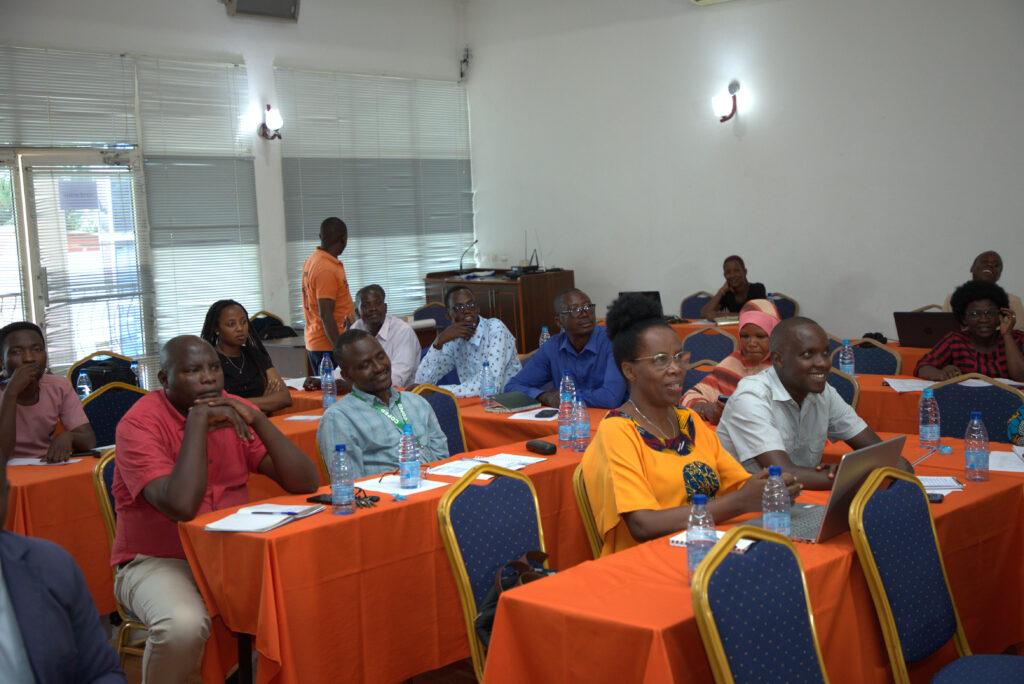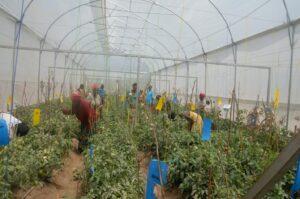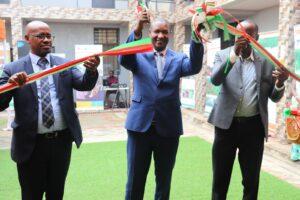National consultations are one way of building a more inclusive national action plan for family farming.
 The process of drawing up the National Action Plan for Family Farming (Plan d’Actions National de l’Agriculture Familiale – PANAF-B) is underway in Burundi. Under the High Patronage of the Ministry of the Environment, Agriculture and Livestock “MINEAGRIE”, two national conferences for consultation and dialogue between stakeholders in the sector in Burundi were organized on February 6 and 7, 2025.
The process of drawing up the National Action Plan for Family Farming (Plan d’Actions National de l’Agriculture Familiale – PANAF-B) is underway in Burundi. Under the High Patronage of the Ministry of the Environment, Agriculture and Livestock “MINEAGRIE”, two national conferences for consultation and dialogue between stakeholders in the sector in Burundi were organized on February 6 and 7, 2025.
 The aim of these conferences was to mobilize the various players in the agricultural sector to collect priority data and information for inclusion in the PANAF-B currently being drawn up, under the facilitation of a multi-stakeholder technical committee appointed by the Minister.
The aim of these conferences was to mobilize the various players in the agricultural sector to collect priority data and information for inclusion in the PANAF-B currently being drawn up, under the facilitation of a multi-stakeholder technical committee appointed by the Minister.
The 1st conference brought together non-governmental players, while the2nd brought together government departments and players. Each category of actor was asked to identify priority actions, expected results and outputs in relation to the 7 pillars of the Global Action Plan 2019-2028. Aspects of agricultural policy, strengthening family farming, the gender dimension, socio-economic inclusion, taking account of young people, agricultural resilience, etc. were all addressed in strict compliance with the national context. 
During the opening ceremonies of the conferences, both the Assistant Minister and the Permanent Secretary of MINEAGRIE recognized that family farming makes a significant contribution to sustainable development. It plays an important role in improving nutrition and ensuring food security and sovereignty. What’s more, they appreciate and encourage the synergy and unity of the stakeholders involved in the sustainable development of agriculture.
 Participants at these conferences included MINEAGRIE executives, UN agencies including FAO and IFAD, international and national NGOs, development advisors from all provincial governors, civil society organizations, family farmers’ organizations and cooperatives, and the media. Everyone expressed the need for this action plan to fit in with the United Nations agenda. The majority testified that family farming in Burundi is generally family farming, but lacks sufficiently clear and concerted planning and policy direction.
Participants at these conferences included MINEAGRIE executives, UN agencies including FAO and IFAD, international and national NGOs, development advisors from all provincial governors, civil society organizations, family farmers’ organizations and cooperatives, and the media. Everyone expressed the need for this action plan to fit in with the United Nations agenda. The majority testified that family farming in Burundi is generally family farming, but lacks sufficiently clear and concerted planning and policy direction.
 Thanks to the data provided by these various players, the PANAF-B development process is taking its normal course under the facilitation of the multi-stakeholder committee. Next on the agenda is a session to present and validate the draft action plan.
Thanks to the data provided by these various players, the PANAF-B development process is taking its normal course under the facilitation of the multi-stakeholder committee. Next on the agenda is a session to present and validate the draft action plan.
 INADES-Formation Burundi is delighted with the contributions made by various national and international players.
INADES-Formation Burundi is delighted with the contributions made by various national and international players. It also acknowledges the support of the World Rural Forum, which has supported Inades-Formation Burundi under IFAD funding through the “Projet de Renforcement de l’Agriculture Familiale au Burundi” (“PRAFABU”), in order to accompany the PANAF-B development process.
It also acknowledges the support of the World Rural Forum, which has supported Inades-Formation Burundi under IFAD funding through the “Projet de Renforcement de l’Agriculture Familiale au Burundi” (“PRAFABU”), in order to accompany the PANAF-B development process.
Published By HAVYARIMANA Richard
Advocacy and Communication Officer











